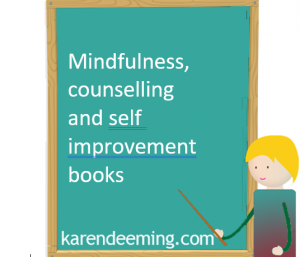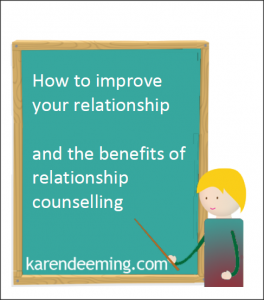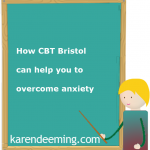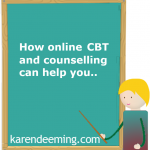In response to Coronavirus (Covid-19), I am offering telephone, online counselling and CBT sessions via Zoom and WhatsApp.
Struggling to entertain yourself whilst you are snowed in?
We live at a time when there are more self-help books on the market than any one person could hope to consume in a lifetime. But in today’s world, finding the time to read even one book, let alone a dozen, can still pose quite a challenge.
To make it easier for people like you with hectic lifestyles, rather than spend hours looking for the most acclaimed self help book, I have come up with the most popular mindfulness, self-improvement and counselling books from my client library:
Key themes covered include: mindfulness, emotional intelligence, focus, personal development and confidence building:
1. Screw Work Let’s Play by John Williams
2. Free Range Humans by Marianne Cantwell
3. Stop Talking Start Doing by Shaa Wasmund
4. What’s Stopping You?: Why Smart People Don’t Always Reach Their Potential and How You Can by Robert Kelsey
5. Mindfulness: Finding Peace in a Frantic World by Professor Mark Williams, University of Oxford and Danny Penman
6. The Artist’s way by Julia Cameron
7. Ask and it is Given: How to Manifest the Law of Attraction by Esther and Jerry Hicks
8. The Happiness Advantage by Shawn Achor
9. How to Save an Hour Every Day by Michael Heppell
10. Overcoming procrastination by Dr Windy Dryden
11. Subpersonalties by Dr John Rowan
12. Meeting the shadow by Connie Zweig
13. The Slight Edge by Jeff Olson
14. It’s not how good you are it’s how good you want to be by Paul Arden
15. Freedom from your inner critic by Jay Earley and Bonnie Weiss
16. Perfect Love Imperfect Relationships by John Welwood
17. Sane New world by Ruby Wax
18. The Chimp Paradox by Stephen Peters
19. The six pillars of self esteem by Nathaniel Branden
20. Boundaries and Relationships by Charles Whitfield
21. Boundaries where you end and I begin by Anne Katherine
22. The Self-Acceptance Project: How to Be Kind and Compassionate Toward Yourself in Any Situation by Tami Simon
23. The Mindfulness and Acceptance Workbook for Anxiety: A Guide to Breaking Free From Anxiety, Phobias, and Worry
by John P. Forsyth and Georg H. Eifert
24. The Compassionate Mind Approach to Overcoming Anxiety (Compassion Focused Therapy) by Dennis Tirch
25. The little book of Ikigai – The essential Japanese way to finding your purpose in life by Ken Mogi
26. What you think is what you get – An introductory textbook for the study of the Alexander Technique by Donald L Weed
This will keep you out of mischief on a cold winter’s evening tucked up with the cat, dog or your laptop on the sofa or when later in the year you are sipping a refreshing cold gin and tonic on a sunny beach
so as one of our favourite authors states: “stop talking start doing” …….
You can book your appointment here or you can contact me on (044) +7950 751352 for outside the UK or 07950 751352 inside the UK. Alternatively by email: karen@karendeeming.com.




![Karen_Deeminga[1]](http://www.karendeeming.com/wp-content/uploads/2015/09/being-practice-self-portrait-e1541437891746.jpg) Welcome to my site. if you have any queries then please
Welcome to my site. if you have any queries then please

